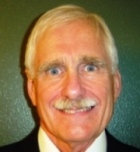
 Greg Lease Executive Coach
Greg Lease Executive CoachHome
About
Executive Coaching
Leadership Coaching
Team Coaching
Group Coaching
Organizational Change
Life Coaching
ICF Code of Ethics
Life Coaching
I am often asked if I am a "Life Coach," or if I also work with individual clients. In addition to working with nonprofit leaders, I also work with a limited number of private clients to achieve desired results and growth in leadership, relationships and other life competencies.
Whether the client wants primarily to work on specific professional or accomplishment goals, or desires primarily personal growth and development, coaching brings increased clarity, focus and accoutability to empower the client to move boldly toward their objectives. The client is always responsible to set the agenda for the coaching; it really is all about the client and moving the client forward toward their desired goals.
If you have read this site's Leadership Coaching page you are already aware that I believe that all coaching is life coaching and that all coaching is leadership coaching. All of us have complex systems of belief (most of which we did not choose consciously) that govern how we conduct our lives, not only in the major events, but more importantly in all the details of life, to which we rarely pay attention. We call this second nature; it's how we can do all the tasks we perform without conscious thought. For example, how recently have you consciously examined the process by which you brush your teeth? or driven a car while conversing or deep in thought? The very ability to perform on "autopilot" is a tremendous gift. It can also be something that limits our growth or prevents us from achieving our goals, when unexamined beliefs keep us from seeing possibilities or facts which contradict those beliefs.
The coaching conversation is designed to be a safe place in which to examine behavior and the underlying beliefs that drive it, often without our awareness. I like to say that a coach can help a client "see around corners," because the process helps the client to gain new perspectives clearly, focus on what will be effective, replace the limiting belief with one that will work better and then specifically plan how to enact the knowledge to bring about the results they want. This process can be uncomfortable as old habitual patterns of thinking and behaving are uncovered and examined, usually for the first time. The coach supplies the support and encouragement to enable the client to navigate this process successfully and then to implement the needed changes. The coach does not advise or prescribe actions or changes; he assists the client to draw on their own knowledge and experience until the client chooses a course of action. That choice, and the resulting action, are entirely the responsibility of the client, and the coach assists by providing ongoing support and accountability until the goal has become reality.
